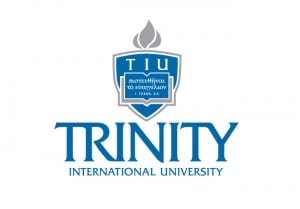
In May of 2023, the U.S. Surgeon General’s office released a study showing that over half of the United States felt significant levels of isolation and loneliness BEFORE THE COVID-19 PANDEMIC. The lock downs and social distancing that followed only further increased disconnection. The report goes on to describe that isolation and loneliness have the same impact on health as smoking a pack of cigarettes daily. This leaves no doubt as to why God places such importance on our connection with others.
Ecclesiastes 4:9-12 conveys the importance of companionship, stating that two are better than one, as they support and lift each other up in times of need. The emphasis is on the detriment of being alone when challenges arise and the strength that comes from genuine connection. The Bible proves numerous examples of mentoring and supportive relationships. Titus 2:4 encourages the older women to teach the younger women, ensuring that wisdom is passed from one generation to the next.
When people think of mentorship, they often think of the older wiser individual teaching the young new person how to navigate their industry and succeed. Modern mentoring takes various forms. It contains both developmental and psychosocial support. Psychosocial support is really about connection and relationship. God made us in His image; therefore, we need relationship. God is a relational God. Imagine for one moment that God is so relational that He exists in three persons and has a relationship with Himself.
The power of connection
 Many may think of the older wiser individual imparting knowledge to the younger up-and-coming person. While there is some truth to that traditional model of mentorship, there is much more diversity in the types and formats of mentoring in the modern world today. Mentoring is an ancient practice that is centuries old. Elijah mentored Elisha (1 Kings 19:21). Jesus spent time developing the disciples and particularly with Peter, James and John (Matt 17:1-9). Paul poured into Timothy (Acts 16:1-3). The reality is that this ancient practice has been limited to certain settings in our modern world. We are highly relational beings.
Many may think of the older wiser individual imparting knowledge to the younger up-and-coming person. While there is some truth to that traditional model of mentorship, there is much more diversity in the types and formats of mentoring in the modern world today. Mentoring is an ancient practice that is centuries old. Elijah mentored Elisha (1 Kings 19:21). Jesus spent time developing the disciples and particularly with Peter, James and John (Matt 17:1-9). Paul poured into Timothy (Acts 16:1-3). The reality is that this ancient practice has been limited to certain settings in our modern world. We are highly relational beings.
At Trinity International University (TIU) educators not only focus on academic development but also on students’ spiritual and emotional growth. They aim to emulate the example of Elijah by nurturing students to reach their full potential. Similarly, pastors and parents serve as models and mentors for their children and congregations. However, it is essential for everyone to have someone pouring into them, whether formally or informally, providing that expertise through relationship.
In today’s church we might call this discipling. There are many discipleship classes and formats that are available, and they are wonderful. Sometimes what is often referred to as informal mentoring though can be missed. There are wonderful, structured programs that work well and cover all the information. What do these programs really do? They communicate knowledge, and they provide a framework for relationships. However, the real work often occurs in those relationships. Consider the beginning of this article for just a moment. The consequence of loneliness and disconnection is damaging and can lead to negative consequences. If these consequences are avoidable with a little effort, then it seems that we should make every effort to do so.
In his book Modern Mentoring (2015), Emelo describes that there are benefits to be had for mentors and their protégés. Not only are there lower turnover rates in the workplace but there is increased job satisfaction and increased employee engagement. Proverbs 27:17 says, “As iron sharpens iron, so one man sharpens another.” It is a biblical principle that we can take with us into the workplace and into professional situations. It is important for us to take the opportunity to begin to invest in others and have someone investing in us.
What about you?
Here is your challenge: Who is pouring into you? We often seem eager to pass on things and develop others, but do we have someone pouring into us? Maybe not a formal mentor but a peer, a friend, someone who challenges our thoughts and provides us with that connection. In today’s world a mentor may be a peer or a colleague. It is simply someone who has an expertise that we want to learn and who can provide us with some support along the way.
Some might feel they are mentors, not needing guidance but what about the relationship? Everyone can benefit from the support of relationships. In the United States we value the spirit of independence. Maybe we need to take a lesson from other cultures for a moment – those that celebrate leaning on each other and relying on each other to grow together like the big family of believers that we are.
We were created for relationship and connection. Mentorship helps to leverage the power of relationship. Yes, it is skill building, but it is also connection; it is a mutually beneficial relationship that allows individuals to stretch and grow. They can have the freedom to step out of their comfort zones because they are not alone. Ideally, we all need to have an Elijah and an Elisha; we must be both Paul and Timothy. That means we are constantly working to develop ourselves and others. As iron sharpens iron, one person sharpens another. Connection and mentoring are essential for growth, support and well-being. Who mentors you, and whom do you mentor?
 Jeffrey Rice is an adjunct professor at Trinity International University-Florida. Tiu.edu/florida
Jeffrey Rice is an adjunct professor at Trinity International University-Florida. Tiu.edu/florida
For more articles on faith, visit https://www.goodnewsfl.org/topic/god/active-faith/

Comments